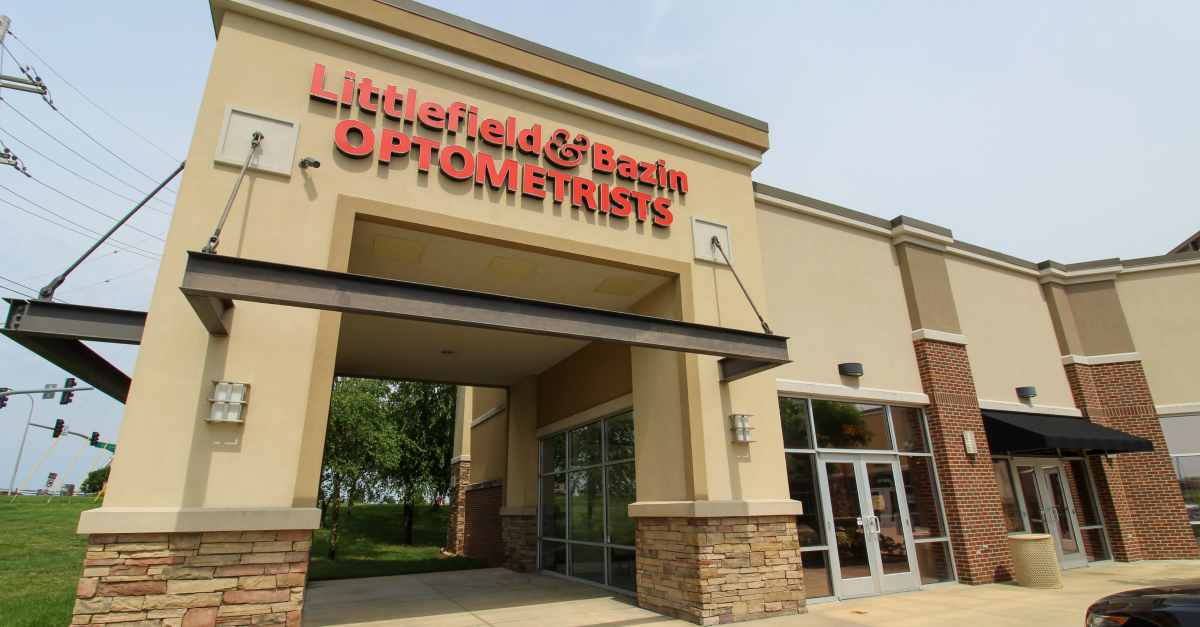Elite skill combination enhances our community’s healthcare niche.
Martin City’s business community is becoming more diverse as more professionals move into our area. Healthcare is an example of an industry coming into focus with the help of two optometrists and their side-by-side practices at the corner of 135th Street and Washington. Dr. David Littlefield and Dr. Beth Bazin offer a comprehensive combination of cutting-edge vision services. Their work is grounded in science, but the exceptional way they practice is nothing short of an art.
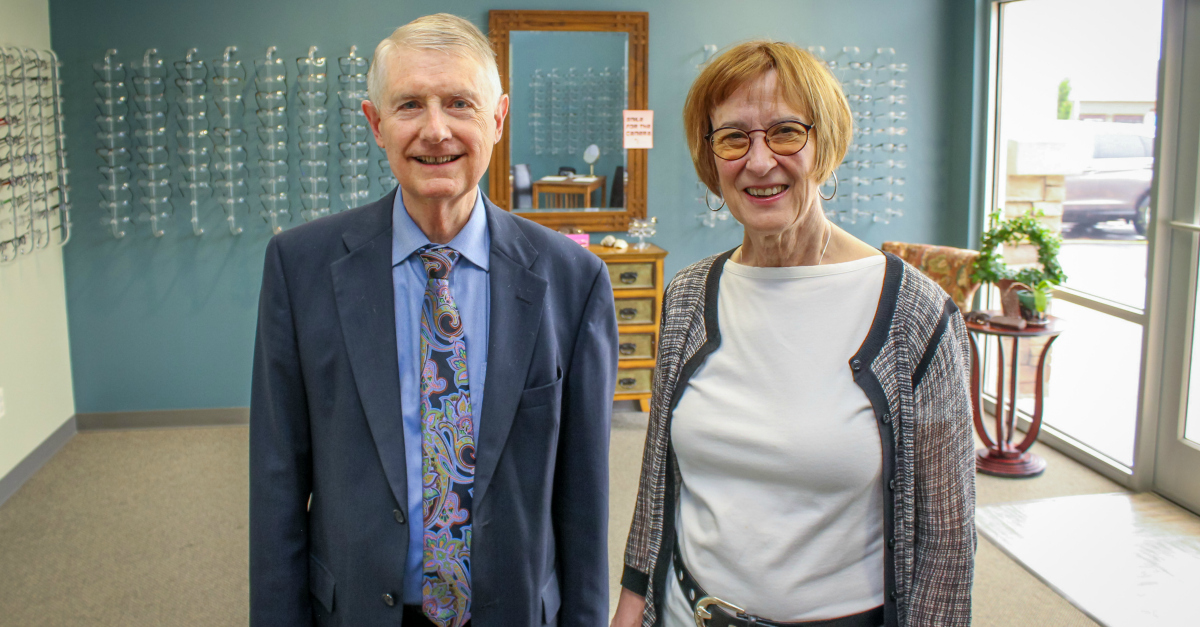
Dr. David Littlefield, O.D., F.A.A.O., Diplomate A.B.O, and Dr. Beth Bazin, FCOVD
An Enduring Vision for Excellence
You might say Dr. Littlefield’s credentials date back more than a century. He comes from a long line of optometrists who were in the profession even before licensing.
“I’m a fourth-generation optometrist. My great, great grandfather wrote a book on the subject back when formal optometry education was still taking shape. If he was here today, he probably wouldn’t even recognize anything in my office other than maybe eyeglass frames.”
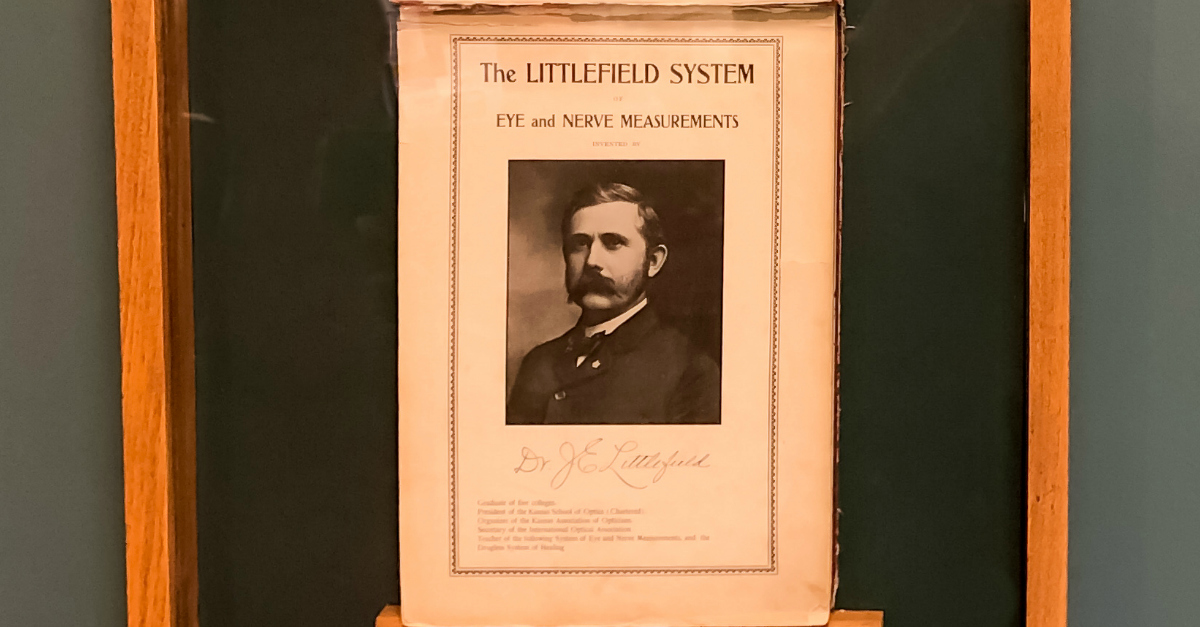
“The Littlefield System of Eye and Nerve Measurements” authored by Littlefield’s great, great grandfather in the early 1900s.
Littlefield has been practicing for decades with an intense interest in always keeping his skills sharp and up to date. In an age of quick exams and screenings aimed at speedy prescription fulfillment, he offers the distinct advantage of refined expertise and experience.
“I’m glad there are clinics like that out there. People need those basic services, but the importance of eye health extends far beyond a good pair of glasses. I try to understand the total picture so that I can provide my patients with the best, comprehensive care that my optometry license allows.”
An essential component of Littlefield’s brand of practice is patience. He doesn’t rush through examinations because he believes each patient deserves his full attention at every appointment.
“I take the time to talk to my patients about more than prescriptions,” says Littlefield. “That understanding keeps them coming back to me. If you jump around from eye doctor to eye doctor, you lose the benefit of understanding over time.”
It’s easy to see that Littlefield is passionate about his work. He tried to retire a few years back, but that didn’t last long because he says his drive to help people was just too strong.
“I love my work. Even after a long weekend, I’m eager to get back to my patients. I never stop being a student of eye health. I literally continue my education far beyond what my license requires every year and I’m constantly studying changes as eye care evolves.”
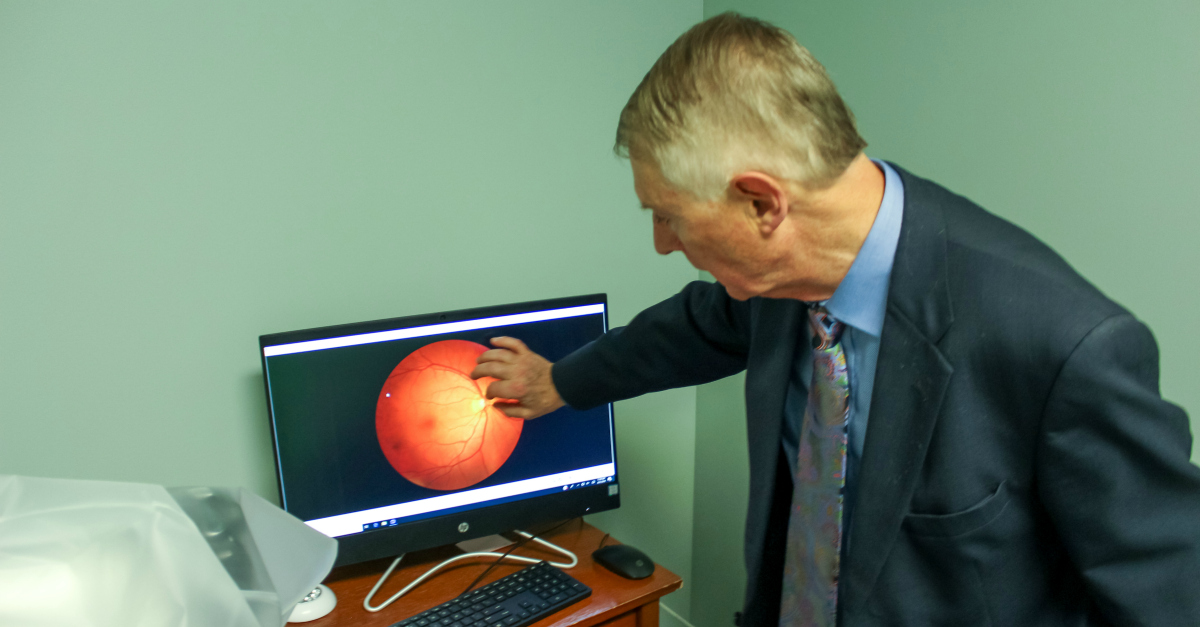
Littlefield’s passion for studying eye health defines a career spanning decades.
Littlefield also takes pride in his expensive collection of high-tech equipment that matches his drive to do exceptional work.
“For example, maybe you’ve been through the common ‘air puff test’ that checks eye pressure for signs of glaucoma. Well, that test alone can only detect about half of glaucoma cases. I have equipment that’s substantially more thorough.”
He says his equipment makes a big difference for his patients and he’s not reluctant to use it even if insurance won’t cover a particular situation.
“If I have a feeling that a patient has a health issue, I’m going to do everything I can to get to the bottom of it, regardless of insurance. That’s just how I work. My devotion to my patients is a higher priority than my revenue.”
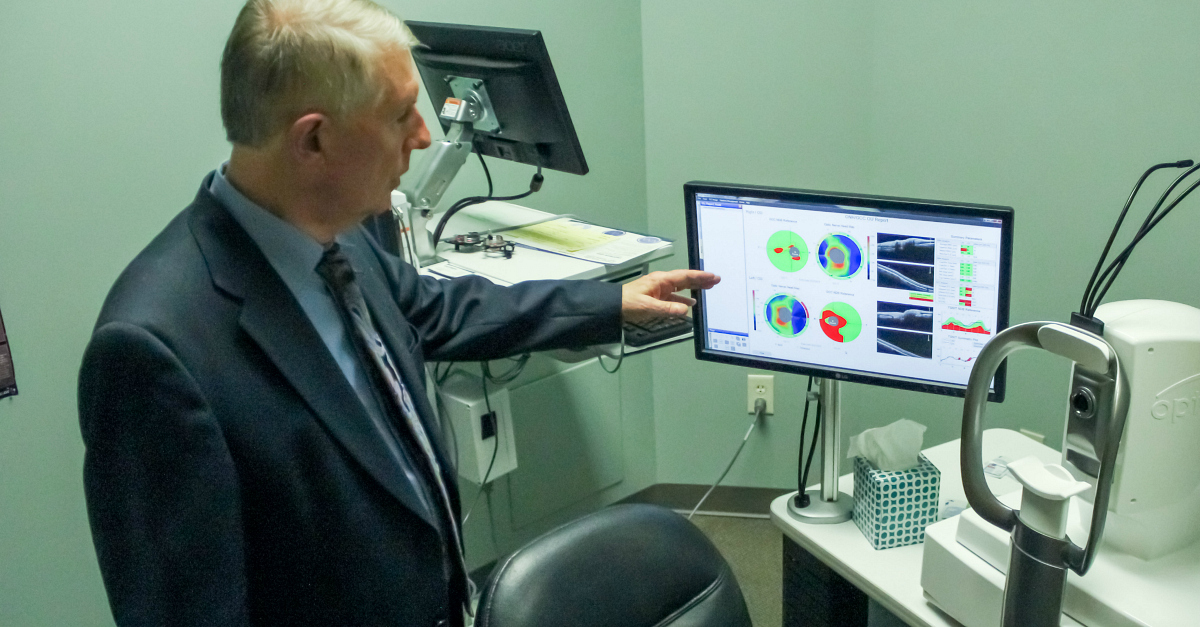
Littlefield’s advanced technology helps him deliver exceptional care.
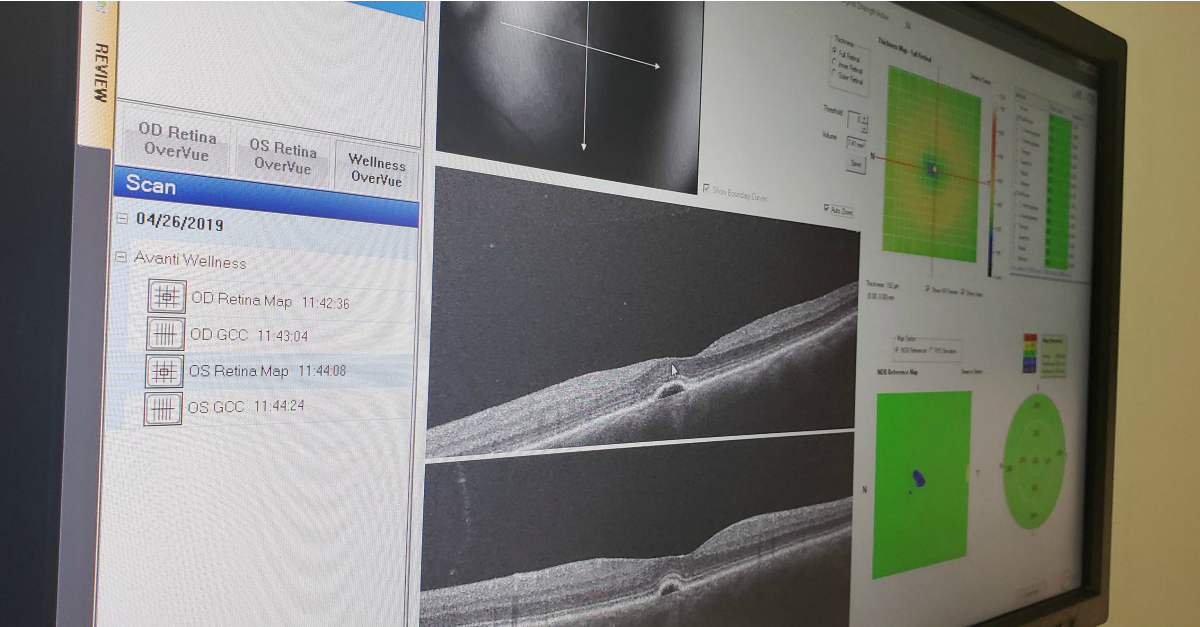
Dr. Littlefield’s retina eye scan technology
While a quick exam from any qualified eye professional may lead you to the prescription you need, you can’t help but feel like Littlefield’s service is a better way to go. His extensive knowledge is impressive. If your priority is early detection of eye diseases or vision problems, or if you want help with managing an eye condition, he’s an especially smart choice.
“Managing eye conditions can really affect the quality of life,” says Littlefield. “Just the other day I saw a patient who was born with different pupil sizes. They’re now starting to create challenges because of heavy computer use. I work closely with her to help her understand what she can do day-to-day to manage the condition in different light conditions.”
Another benefit of Littlefield’s seasoned expertise is his ability to identify connections to health issues unrelated to vision. He says you would be surprised at how revealing those connections can be.
“Specific test results can point to many kinds of diseases including Alzheimer’s, diabetes, high blood pressure and even brain tumors. My practice goes deep into areas like this.”
When Littlefield identifies patients who seem to be good candidates for advanced visual therapy, he takes pride in referring them across the lobby to his colleague, Dr. Beth Bazin.
“It’s great to be able to send patients to her and know they are in such good hands.”
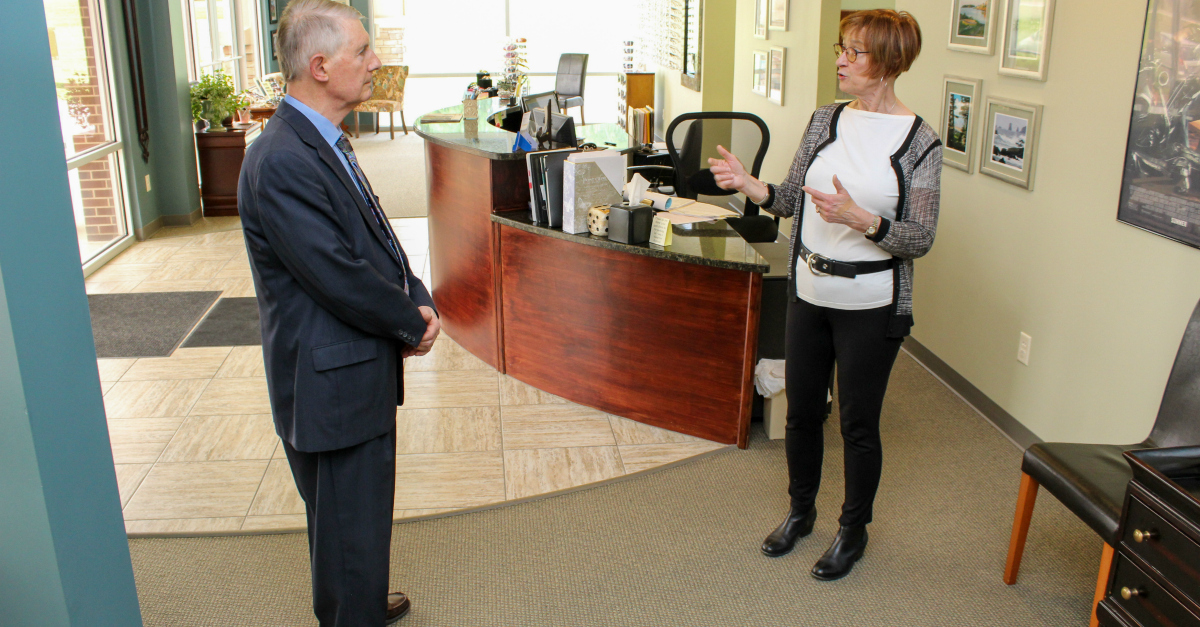
Littlefield’s practice and Bazin’s practice are side-by-side in the same building.
An Eye for Therapy and Rehabilitation
Dr. Beth Bazin practices optometry with a distinctly different focus than Dr. Littlefield’s practice. It started even before she became an eye doctor, way back when she was a special education teacher working with learning disabled kids in Lee’s Summit, Missouri. She says she crossed paths with Dr. Littlefield and a light bulb went off.
“I was still a school teacher when I attended a vision seminar he organized and it really woke me up to the fact that vision is about so much more than reading.”
That seminar stayed on her mind as she taught, and she soon realized that the connection between vision and learning disabilities was significant, but overlooked.
“The general assumption is that if a kid’s eyes look straight, and they’re not complaining, their vision is okay, which is often a mistake,” says Bazin. “And on top of that, there’s the assumption that glasses fix everything. If you’ve got glasses, your vision problems are solved. Sometimes there’s nothing further from the truth.”
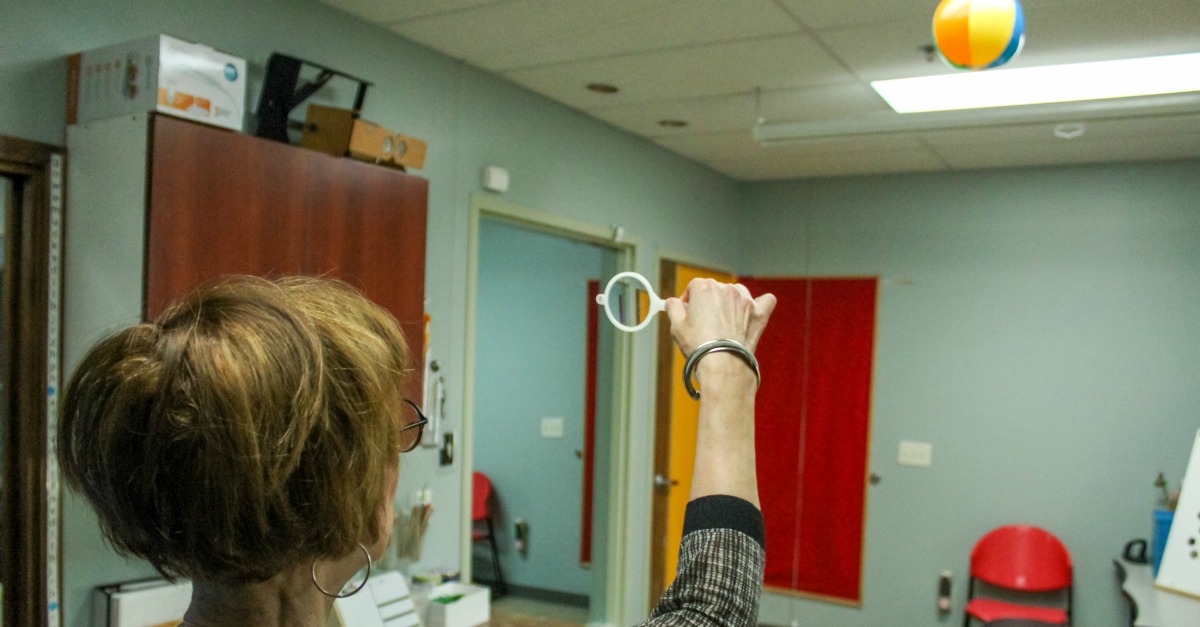
Dr. Bazin demonstrating an eye therapy exercise
Bazin switched careers to do something about it. She went back to school to become an optometrist, completed a residency in vision therapy in New York City and is now one of the only board-certified optometrists of her kind in Kansas City. After 34 years of specializing in neurodevelopmental and rehabilitation, she still loves her work and knows she’s made a difference for countless patients.
“I’m raising awareness about the connection between vision and learning. I’m showing that children who are sometimes labeled as lazy or not smart are simply misunderstood and vision therapy can get them on track.”
She says serious vision problems often begin when eyesight comes under stress too early in life.
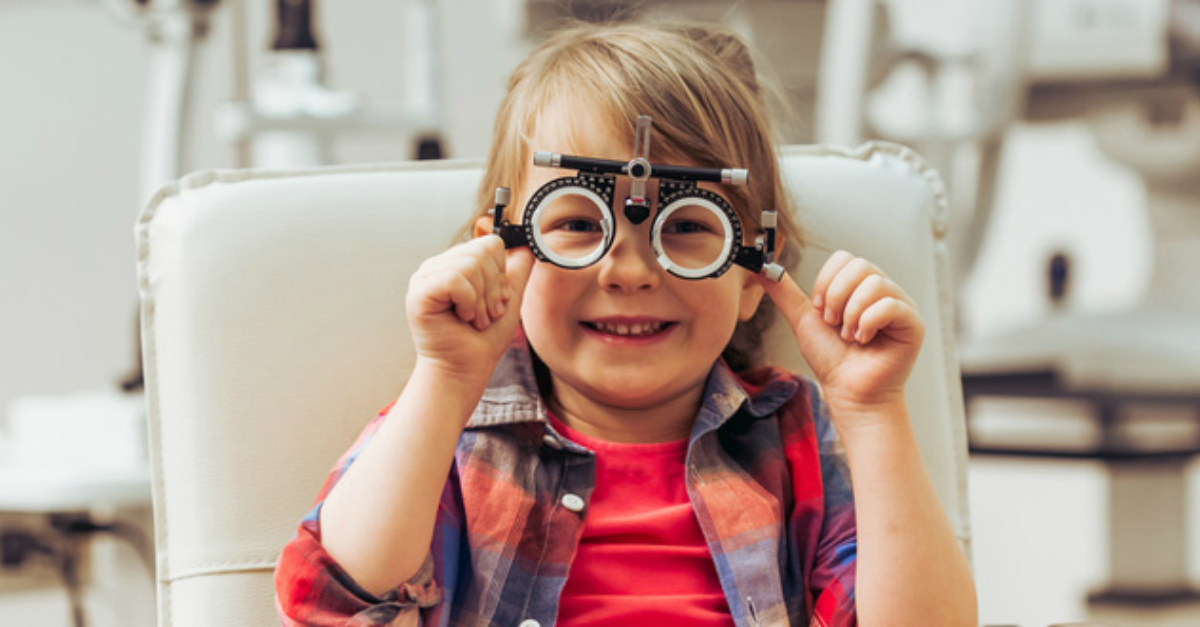
Most learning in the early years comes through input from the eyes.
“Kindergarten kids are now doing what first graders used to do. They’re reading and expected to write. Intellectually, they may be ready to read, but physiologically, they’re probably not ready to write. It’s extremely stressful for kids today. I’m seeing more and more four and five-year-olds needing therapy because their brains are expected to do things they’re literally not capable of yet.”
Illness can create problems, too. For example, ear infections can impact vision because the inner ear sends coordinating visual signals that can be compromised by serious infections.
“We’re not only talking about the eyes and muscles. We’re talking about the ears and most importantly, the brain. We see with our brains. If visual communication isn’t flowing correctly or the brain is slow to process it, the problems can be very serious and sadly, undetected.”
Bazin says when there are problems with visual processing, letters on a page can appear mixed up. You also might lose your place when reading, skip lines and not remember what you just read. Bazin says kids don’t usually indicate that they’re having trouble simply because they don’t realize what’s happening.
“Kids won’t just tell you, even when they’re seeing double or having some other sort of trouble because it’s all they know. They think everyone is like that. I’ve even treated kids who literally have no vision in one eye and no one knew.”
Dr. Bazin provides therapy that strengthens visual processing from end to end. The therapy can involve video game screens that connect with young brains in strategic ways or even a swing that stimulates visual processing anatomy in a child’s head.
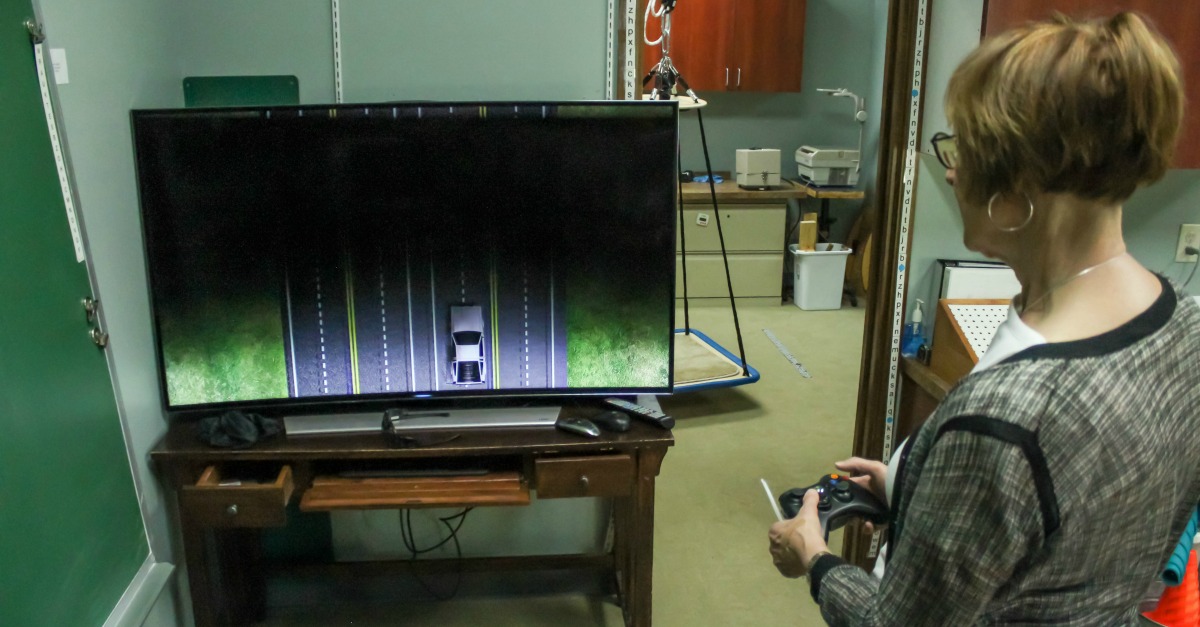
Specialized 3D ‘video games’ sharpen a patient’s visual processing abilities.
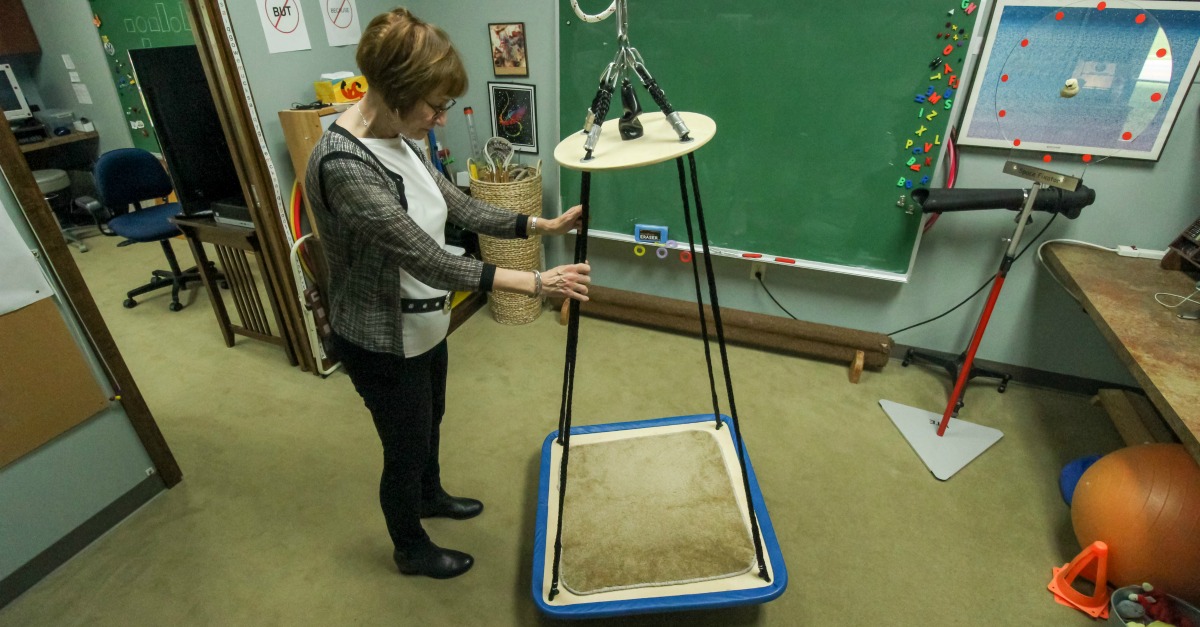
A simple swing stimulates key components of a child’s anatomy to improve visual processing.
“Kids love coming to see me!” says Bazin. “It’s really fun for them and the older ones learn interesting things about optics and physics that can also come in handy in school.”
Bazin’s therapy sessions can include playing catch with a ball while wearing special lenses that help a young brain speed up visual processing over time. Prisms may also be used to open up a wider field of vision or visual periphery to boost the ability to detect motion.
“My work is just so much fun,” says Bazin. “Nothing makes me happier than a child coming in and telling me they’ve done something wonderful since our last visit, like hitting a home run or getting a good score on a test.”
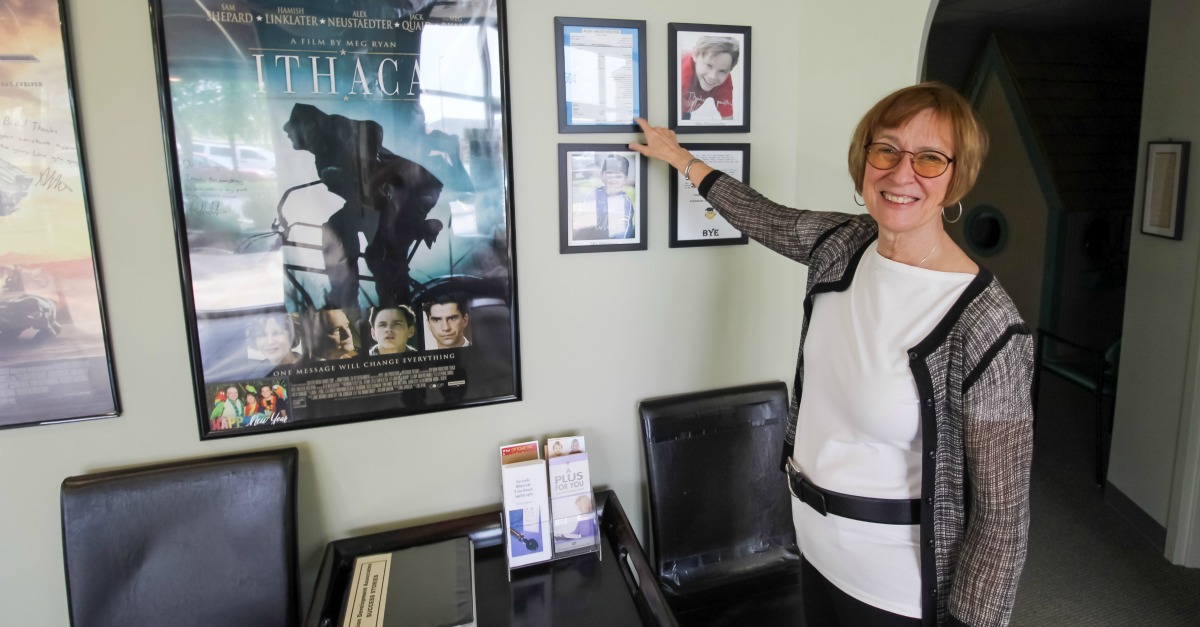
Dr. Bazin is proud to show off success stories framed on her walls.
A Match Made in Martin City
The Littlefield and Bazin eye care practices are perfectly collaborative without overlapping. Each optometrist enjoys a special peace of mind that comes with referring patients to an esteemed colleague they know they can trust. Littlefield says everyone wins.
“It’s a good model and pretty uncommon in the Kansas City area. There are a variety of optometrist combinations out there, but our mix of advanced eye care and vision therapy is really comprehensive and fits together well.”
“Our practices really do amount to a valuable specialization,” says Bazin. “We know our patients very well and wouldn’t have it any other way.”
“People tell us this is the best eye clinic they’ve ever come to,” adds Littlefield. “We get patients in quickly and we try to avoid making them wait. They really do come first.”
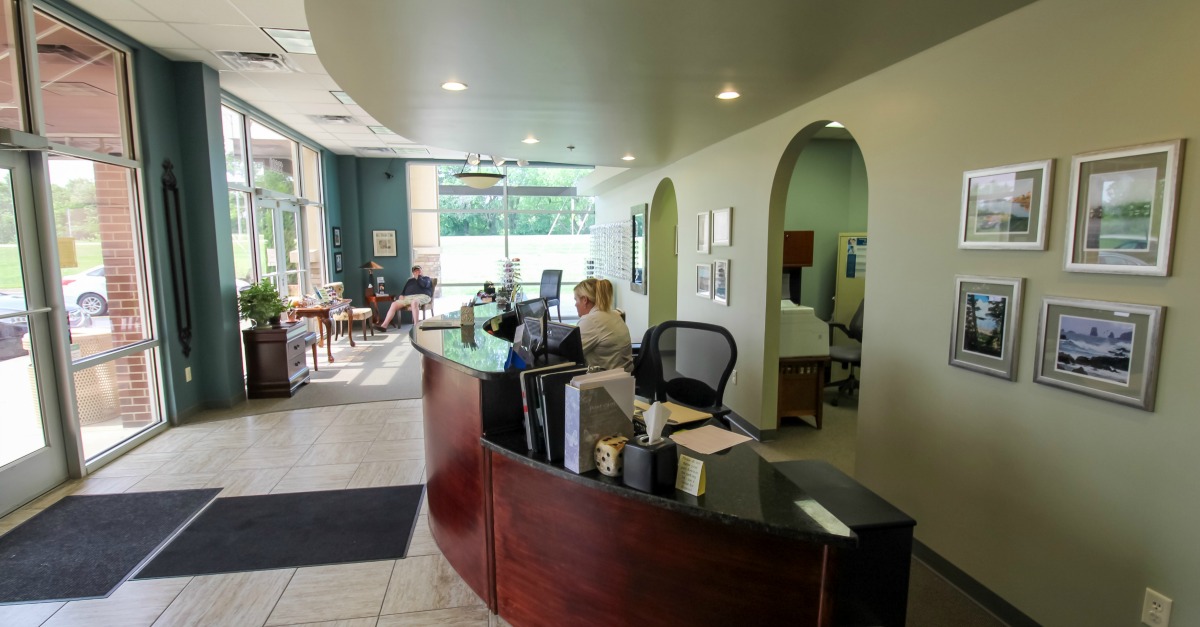
The lobby of Littlefield & Bazin Optometrists
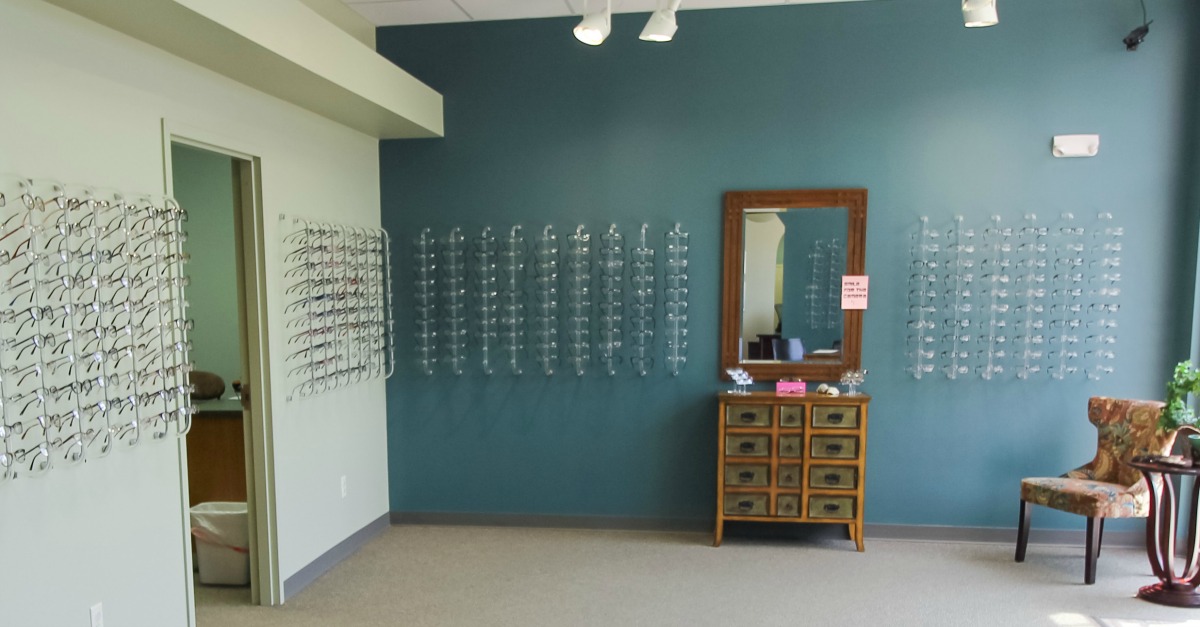
A wide range of frame options await your prescription.
Littlefield has been impressed by Martin City’s momentum since moving into the shopping center space seven years ago, redesigning it himself and inviting Bazin to join him. He’s excited by infrastructure improvements and by the way the community has welcomed him.
“The 135th Street improvements run along our office and that’s been helpful. My patients have included local restaurant owners and some of the employees at Fishtech, and that makes me feel good. I enjoy being part of Martin City.”
“Having lived in different parts of the country, including New York City, I really think Martin City is an example of what makes our part of the country special, “ says Bazin. “People here are kind and take care of each other. We open doors for each other. The civility that so many people believe is gone in this country is still very much alive here. That’s what makes Martin City a great community.”
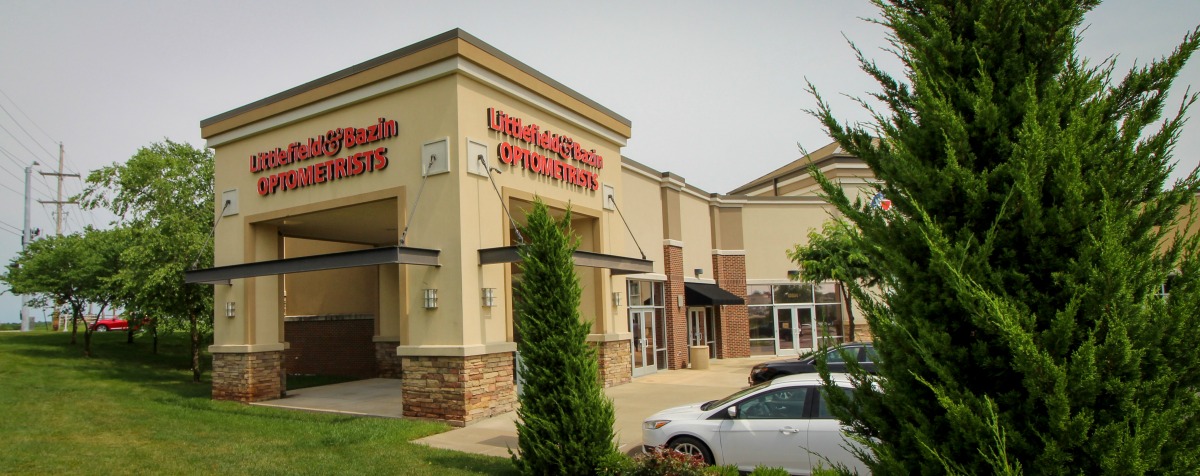
Thank you, Dr. Littlefield and Dr. Bazin, for dedicating yourself to your work and our community. It’s good to know that when parents or their children need eye care, there’s no need to leave Martin City! Stop by Littlefield and Bazin Optometrists and rest assured you’ll be doing the best thing for your family.

